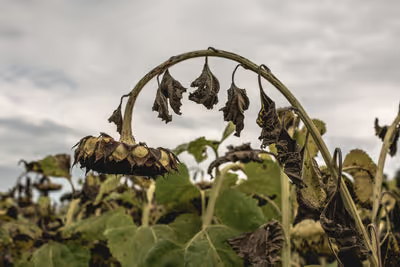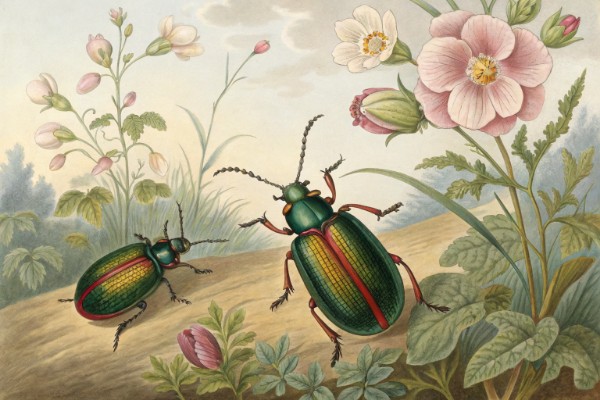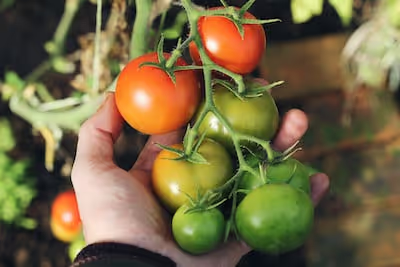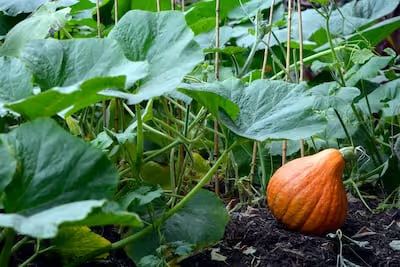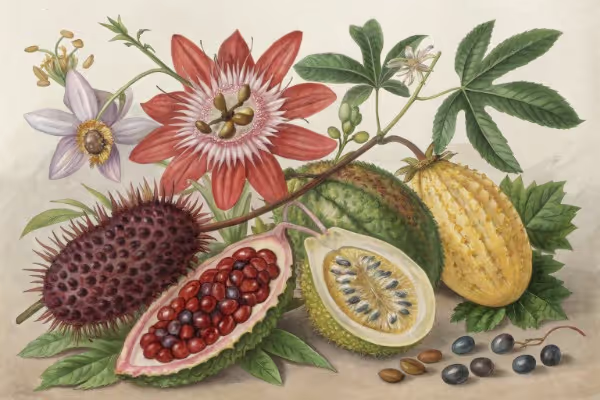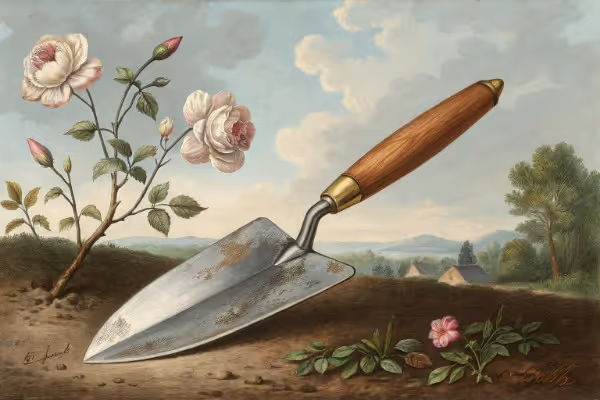Gardening Tools 101: Essential Gear for New Gardeners
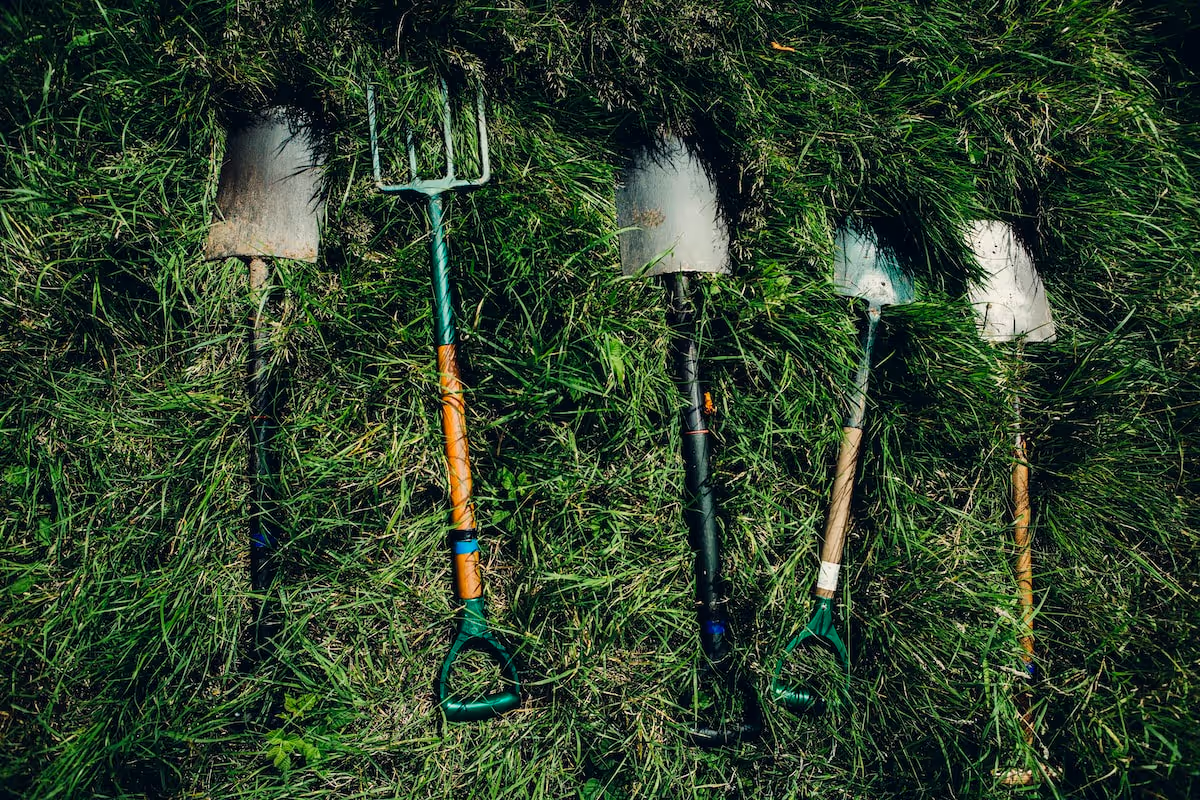
Gardening Tools
Grab your gloves and sharpen your shears—using the right gardening tools turns chores into satisfying pleasures. Quality gardening tools reduce effort, boost efficiency, and help your garden flourish. This friendly guide breaks down the essential gardening tools you'll need, making your gardening simpler, more enjoyable, and infinitely rewarding.
Cheatsheet: Essential Garden Tools for Quick Success
🛠️ Tools and Products You'll Need
- Hand Trowel: Dig, plant, weed.
- Pruners (Bypass Shears): Clip stems, shape bushes.
- Garden Gloves: Shield hands, prevent blisters, block thorns.
- Watering Can/Hose: Hydrate plants efficiently.
- Hand Fork: Loosen soil, mix compost.
- Spade or Shovel: Turn soil, plant shrubs (opt for steel heads).
- Rake: Clear debris, smooth beds.
- Kneeling Pad: Protect knees, increase comfort.
- Wheelbarrow: Move soil, mulch, plants (for gardens over 100 sq ft/10 m²).
🌱 Step-by-Step Setup
- Choose ergonomic designs to lower strain and injury (up to 50% fewer repetitive motion injuries).
- Sanitize pruners and trowels after each session to reduce plant disease spread by 70%.
- Sharpen blades every month to maintain clean cuts and healthy growth.
- Store tools dry to prevent rust; oil metal parts for longevity.
- Label all tools with your name to prevent loss or mix-ups if using a shared space.
🌻 Healthy Harvests & Self-Sufficiency
Fresh-picked produce contains up to 40% more vitamins than store-bought. Reliable tools support consistent harvests, leading to better nutrition and self-reliance.
🧑🌾 Quick Care for Tools
- Wipe tools after use.
- Keep blades sharp and rust-free.
- Hang up tools to air-dry and prevent bacteria growth.
🔎 Pro Tips
- Choose tools with solid steel or wooden handles for extended life.
- Try on gloves for proper fit—ill-fitting gloves reduce dexterity.
- Opt for lightweight watering cans (1–2 gal / 4–8 L) to prevent strain.
Getting Started: The Essential Gardening Tools
When I first started gardening, my excitement overshadowed practicality, and I bought every shiny gadget on the market. Mistake learned: gardening thrives on simplicity.
Here's a straightforward breakdown of essential gardening tools that every beginner should have, from personal experience and countless hours digging in the dirt.
Hand Tools: The Everyday Heroes
The Humble Hand Trowel
I carry my trusty stainless steel trowel wherever I garden. For planting seedlings or scooping soil, it's what I reach for most.
Pruning Shears (Secateurs)
A sharp pair of shears saves your plants from ragged, damaging cuts. Clean pruning makes plants healthier, promoting vigorous new growth.
Cultivator (Hand Fork)
Hand forks gently loosen soil without hurting plant roots. Ideal for weeding tight spots around prized veggies or flowers.
Long-Handled Garden Tools: Save Your Back!
The All-Purpose Garden Spade
A good-quality spade made from carbon or stainless steel makes digging trenches, moving compost, and transplanting plants smooth and easy.
Once bought a cheap spade; it bent almost immediately—lesson learned the hard way.
Garden Fork
Ideal companion for turning over soil, mixing compost, and harvesting root vegetables. A garden fork breathes life into your soil beds.
Garden Hoe
The hoe saves hours weeding flowerbeds and between veggie rows. Shallow, frequent sweeps disrupt weeds before they take hold—saving you headaches later.
Watering Essentials: Life Source of the Garden
Watering Can
A balanced watering can constructed from galvanised metal or sturdy plastic makes accurate, gentle watering stress-free. Opt for one with a detachable rose (sprinkler head).
Garden Hose with Adjustable Nozzle
Choose a flexible, kink-resistant hose to avoid cursing your way through daily watering. Adjustable fittings give control over water flow, protecting delicate plants.
Protective Gear: Fingers (and Knees!) Matter
Gardening Gloves
Thorns, sharp stems, and dirt will become regular acquaintances. I've spent days nursing scratches I wouldn’t have if I'd just worn good-fitting, durable gloves from day one.
Knee Pads or Garden Kneelers
Kneeling to plant seedlings or do precise weeding isn't friendly on the joints. Knee pads or cushioned kneelers offer relief enhancing comfort for extended garden sessions.
Storage & Maintenance Essentials
Garden Tool Storage
Hung tools or neatly stored in bins or sheds prevent rust and damage. Well-stored equipment extends lifespan—storage solutions need not be elaborate, but dry and organized.
Sharpening and Maintenance Tools
Blades perform best when sharp, clean, and rust-free. Basic sharpening stones or files, mineral oil for lubricating tools, and brushes for cleaning dirt off tools after use are trusty companions.
"Investing just 10 minutes monthly into tool maintenance extends their lifespan by years, saving gardeners time, frustration, and money—Royal Horticultural Society."
Optional Tools Worth Considering
- Wheelbarrow: Ideal if moving heavy compost, soil, plants, and debris becomes regular. Worth the investment if space permits.
- Garden Rake: For removing stones, evening soil surfaces, and tidying mulch or leaves—helps keep the garden tidy.
- Loppers: Long-handled pruning shears ideal for thicker branches, preventing strained arms during pruning sessions.
Remember, gardening tools aren't about quantity but knowing your needs. Spend wisely and always maintain them—your plants and body will thank you.
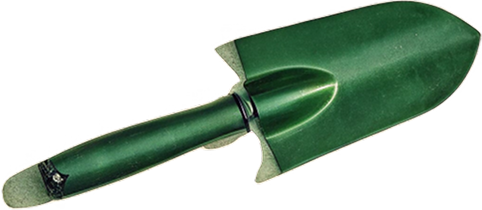
Want smarter plant choices? 🪴
Frequently Asked Questions About Gardening Tools
How do I maintain and care for my gardening tools?
Regular maintenance ensures the longevity and effectiveness of your gardening tools. After each use, wipe tools clean with a damp cloth and dry thoroughly to prevent rust. Periodically, sharpen blades of pruning shears and shovels to improve performance. Applying a thin coat of oil keeps metal surfaces rust-free and wooden handles conditioned.
Which gardening tools are essential for beginners?
For new gardeners, investing in foundational gardening tools simplifies tasks. Begin with a sturdy hand trowel, pruning shears for trimming plants, a garden fork for aerating soil, quality gardening gloves, and a watering can or hose. These basic tools provide versatility and ease to routine gardening tasks.
How do I store gardening tools properly?
Proper storage preserves your gardening tools and prevents damage. Store tools indoors or in a garden shed away from moisture and direct sunlight. Use hooks or racks to hang larger items like rakes and hoes, and keep smaller tools organized in dedicated storage bins or compartments. Proper storage helps avoid accidents and extends tool lifespan.
What gardening tools work best for container gardening?
Container gardening benefits from compact, precise gardening tools. A hand trowel and transplanter help maneuver plants in tight spaces, while pruning scissors keep container-grown plants tidy. A watering can with a narrow spout directs water neatly into containers without splashing.
Can gardening tools help prevent common gardening injuries?
Yes—selecting ergonomic and well-designed gardening tools significantly reduces strain. Choose tools with cushioned handles and lightweight materials to minimize hand fatigue. Additionally, knee pads or kneeling pads reduce stress on knees during prolonged periods of planting or weeding.
Should gardening tools be disinfected, and if so, how?
Regular disinfection of gardening tools limits the spread of plant diseases. Clean metal blades and surfaces using a solution of one part bleach to nine parts water or rubbing alcohol. After disinfecting, rinse thoroughly with water and dry completely before storing to maintain tool quality.
What types of gardening tools are best for pruning?
Pruning requires specialized gardening tools tailored to plant size and branch thickness. Hand pruners easily trim stems up to half an inch (about 1.3 cm) thick, while loppers handle branches up to two inches (about 5 cm). For taller trees, pole pruners allow you to reach branches safely from the ground.
Building your collection of gardening tools is less about chasing the latest gadget and more about finding what fits your hands and your soil. A sharp spade, a sturdy trowel, reliable pruners, and a trustworthy wheelbarrow—these are the backbone of any shed. Start simple, buy quality, and let your tools earn their scars. Take care of them, and they’ll take care of your garden. Remember, the right gear turns chores into rituals and makes the work honest, not hard. With the right gardening tools, you’ll spend less time wrestling with gear and more time growing something worth eating, smelling, or sharing.
The Money Saver's Guide to Gardening Tools
Invest in Multi-Purpose Tools
- Hori-Hori Knife: Digs, cuts roots, weeds, measures depth—one tool replaces four.
- Cultivator Hoe Combo: Breaks soil, clears weeds, opens planting furrows simultaneously.
Tool Longevity Practices
- Regular Oiling: Wipe metal blades monthly with vegetable oil or WD-40 to prevent rust.
- Sanding Handles: Lightly sand wooden handles annually; prevents splitting and splinters.
- Proper Storage: Store tools off damp floors, use wall hooks to maximize lifespan.
Second-Hand Finds Worth Buying
- Heavy-Duty Tools: Shovels, hoes, rakes—buy quality used ones at fraction of price.
- Vintage Pruners: Old pruners made from forged steel sharpen easily, last decades.
- Wheelbarrows: Used metal wheelbarrows in rust-free condition cost less and outperform plastic ones.
Budget-Friendly DIY Maintenance
- Sharpen Tools at Home: Use inexpensive file or sharpening stone instead of professional sharpening services.
- Replace Handles Yourself: Replace broken tool handles with hardwood replacements cheaper than full replacement tools.
Community Exchange Opportunities
Participate in gardening tool libraries or local gardening clubs to borrow or exchange rarely-used equipment—reduces costs and promotes community sharing.
Find out which plants will thrive in your garden!
Answer a few fun questions and get custom plant recommendations perfect for your space. Let’s grow something amazing together!

start your season
